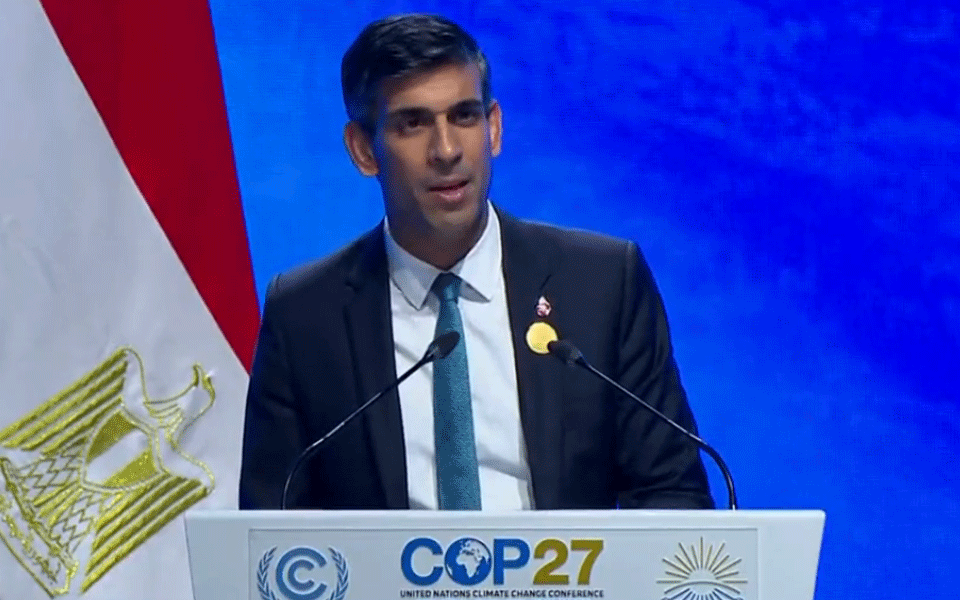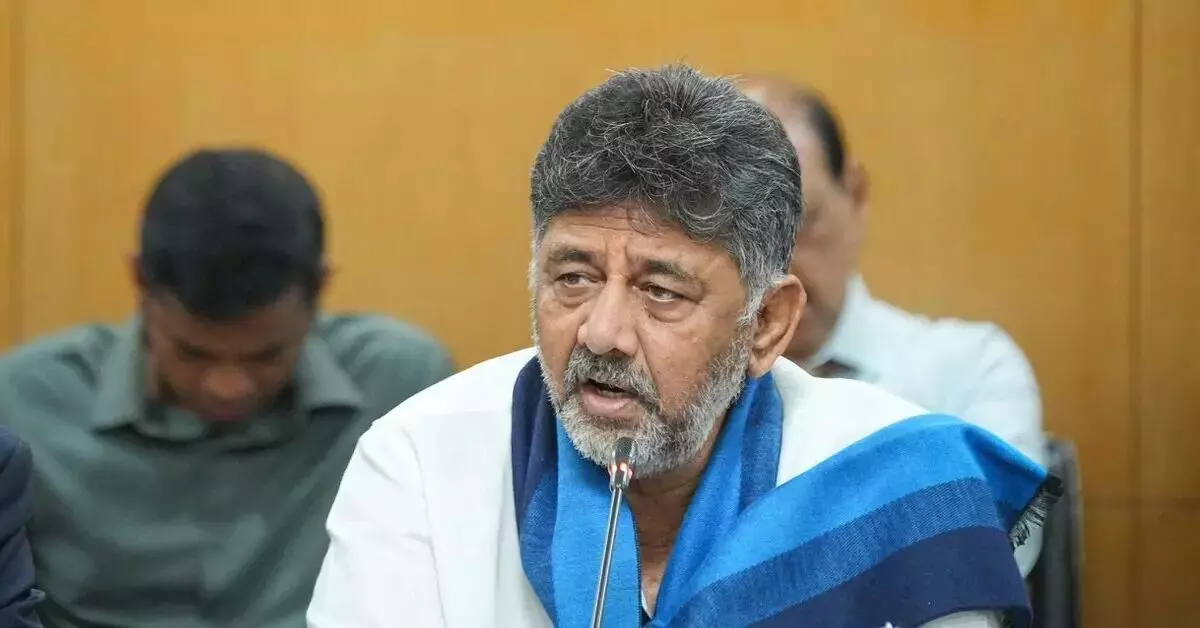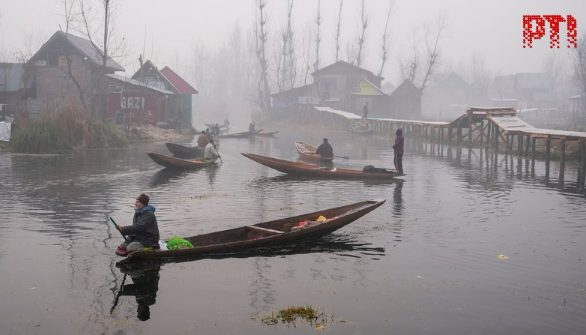London (PTI): British Prime Minister Rishi Sunak on Monday declared that it was time to act faster on climate change because it is the right thing to do as he committed 11.6 billion pounds as the country's commitment to the climate fund during his address at the COP27 summit in Egypt.
In his first major address on the world stage since taking charge at 10 Downing Street, the Indian-origin leader pointed to green energy investment as a "fantastic source of new jobs and growth" as he pledged to build on the room for hope created during the UK's presidency of COP26 in Scotland last November.
He also used his speech to pay tribute to COP26 President, Indian-origin former minister Alok Sharma, "for his inspiring work" to deliver on the Glasgow climate pact of last year.
[Russian President] Putin's abhorrent war in Ukraine and rising energy prices across the world are not a reason to go slow on climate change they are a reason to go faster," said Sunak, in his relatively short address at the summit being held in Sharm El Sheikh.
"Instead of developing countries being unfairly burdened with the carbon debt of richer nations and somehow expected to forgo that same path to growth, we are helping those countries deliver their own fast track to clean growth," he said.
Sunak referenced a speech by the late Queen Elizabeth II to the COP26 summit last year, where she said there was "hope" for the climate if countries come together.
"She reflected how history has shown when nations come together in common cause, there is always room for hope. I believe we found room for hope in Glasgow with one last chance to create a plan that would limit global temperature rises to 1.5 degrees, we made the promises to keep that goal within reach. And the question today is this can we summon the collective will to deliver them? I believe we can," he said.
The UK Prime Minister reflected on the fact 90 per cent of countries are now signed up to net zero targets even as he admitted the pandemic "all but broke" the global economy.
"But I can tell you today the United Kingdom is delivering on our commitment of 11.6 billion pounds, and as part of this we will now triple our funding on adaptation to 1.5 billion pounds by 2025, he said, adding that he profoundly believed it is the right thing to do.
Listen to Prime Minister Motley of Barbados as she describes the existential threat posed by the ravages of climate change, or look at the devastating floods in Pakistan where the area underwater is the same size as the entire United Kingdom.
When you see 33 million people displaced, with disease rife and spreading through the water, you know it is morally right to honour our promises. But it is also economically right too. Climate security goes hand-in-hand with energy security," Sunak said.
Sunak called on nations to honour the promises made in Glasgow and direct public and private finance towards the protection of the planet, which would turn the struggle against climate change into a global mission for new jobs and clean growth.
"And we can bequeath our children a greener planet and a more prosperous future. That's a legacy we could be proud of. So, as we come together once again in common cause today, there really is room for hope. Together, let us fulfil it," he noted.
Earlier on Monday, he held a series of bilateral meetings on the sidelines of the summit in Egypt, including his first in-person interaction with French President Emmannuel Macron and European Commission President Urusula Von Der Leyen.
Let the Truth be known. If you read VB and like VB, please be a VB Supporter and Help us deliver the Truth to one and all.
Bengaluru, Dec 20 (PTI): With the leadership issue involving him and Chief Minister Siddaramaiah coming to the fore again, deputy CM DK Shivakumar on Saturday said the Congress high command has told the two leaders as to when they will be called to Delhi to to discuss the matter.
He said that both of them will go to Delhi and meet the high command, when summoned.
"I will inform you, I won't do anything without informing you. I will not go hiding from you," Shivakumar told reporters here in response to a question on him and Siddaramaiah's likely visit to the national capital to meet the party high command after the just concluded legislature session.
Asked if there was any invitation from the high command, asking him and CM to come to Delhi, he said, "they have told something to both of us, they have told both of us over phone as to when they will call us. We will go, both of us will go."
ALSO READ: Kalaburagi: ‘Vartha Bharati’ Kalyana Karnataka edition launched
"They (high command) have said they will call both of us at the appropriate time, we will wait for the call," the Karnataka Congress chief added.
Shivakumar's statement came a day after Siddaramaiah asserted in the Assembly that he would continue in office. He had also said that the Congress high command was "in my favour" and asserted that no decision was made on him staying at the helm for only two-and-a-half years, as per a rumoured 2023 agreement on power-sharing with his deputy.
Shivakumar, had said that he and CM Siddaramaiah have come to an agreement with the involvement of the Congress high command, and both of them will abide by it.
The power tussle within the ruling party has intensified amid speculations about a change in chief minister in the state, after the Congress government reached the halfway mark of its five-year term on November 20.
The speculation was fueled by the "power-sharing" pact between Siddaramaiah and Shivakumar in 2023.
Meanwhile some 'Naga Sadhus' visited the Deputy CM's residence and blessed him.
ALSO READ: Karnataka CM Siddaramaiah launches new e-Khata scheme
Stating that he is going to Delhi on Tuesday to meet various central ministers, Shivakumar, who is also the Minister for water resources said, "the central government's water resources department has called us regarding interlinking of rivers."
"I will go there and discuss matters related to the state's river projects like Mahadayi, Krishna water award, Mekedatu, and Upper Badhra."
He said he will also meet the central water resources minister, forest minister, urban development minister.
"There are a lot of issues. We wanted to meet them along with MPs from the state, but still I will go and meet. Then after that, if needed, we will meet the Prime Minister also with the issues," Shivkumar added.
Hitting out at the Modi government at the Center for replacing the existing rural employment law MGNREGA, and removing Mahatma Gandhi's name from it, Shivakumar accused it of insulting the father of the nation.
He also challenged the government to remove Gandhiji's image from currency notes.
"The country wants Gandhi. People of the country will respond to it," he said.
"They want to change Gandhi's name...let them change this picture of Gandhi also," he said, showing a currency note.
"With Gandhi's name we had started an employment guarantee scheme under the leadership of Sonia Gandhi and (late) Manmohan Singh (former PM), the MGNREGA.....they want to kill the scheme, so they have changed its name. A big movement will start against it from Karnataka itself," he said.





